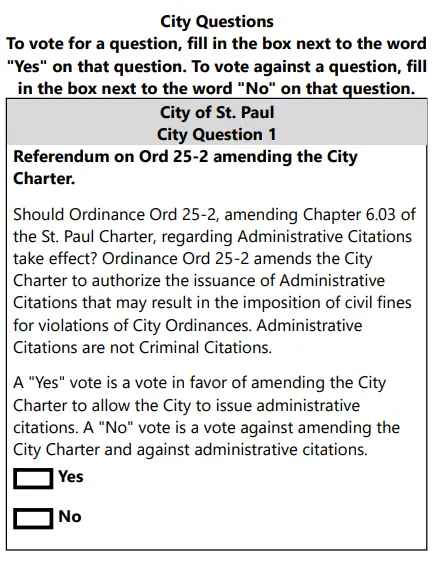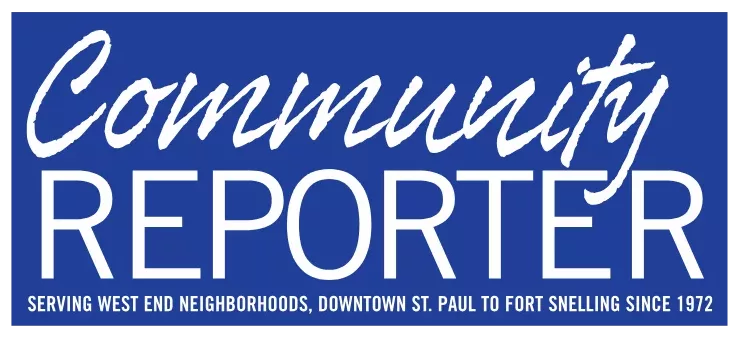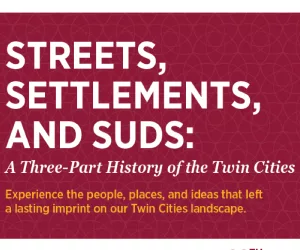In January of this year, the St. Paul City Council passed an ordinance to allow itself the ability to impose fines on businesses in the city without bringing criminal charges against them, largely to enforce the wage theft and tenant protection ordinances that had little teeth without additional tools available for enforcement.
The administrative citation ordinance was to go into effect in April of this year, but concerned citizens collected signatures to put the question of whether the city should have that power on this year’s ballot, rather than leaving it up to the council and Mayor to decide.
“My primary motivation for organizing the petition drive was my belief that voters should decide what penalty power the city has, not elected officials,” said Peter Butler, an advocate against the proposed amendment.

Among Butler’s primary arguments against the amendment is that the language is vague and could lead to uneven application, or even be abused.
Additionally, Butler said in a presentation emailed to media, the amendment to the City Charter seems redundant.
“The City has abatement powers and wage theft should be criminally prosecuted. Licenses can be suspended or revoked,” the presentation said, in part.
Advocates, on the other hand, say it is well past time for city leaders to have the ability to to levy administrative citations, given that St. Paul is the only city in the state without that power already and it has caused city leaders problems over the years.
“I’ve worked in City Hall in multiple roles and I used to get phone calls from parents who were scared, saying their landlord is asking them to pay for something they shouldn’t pay for,” said Matt Privratsky, a former interim-City Council member and current chair of the Yes for Fairer St. Paul campaign working to pass the charter amendment. “The only tool the city has is to revoke a certificate of occupancy, which would leave families homeless.”
He said that, if the amendment were to pass, it would give city leaders another tool in their toolbox, and only for those who transgress approved city ordinance.
“The City knows it needs these tools in place,” Privratsky said. “Earned sick and safe time and minimum wage rules need these tools.”

He said that, while the amendment itself doesn’t spell out minimum and maximum fines, it does require city council to pass or amend ordinances to define what fines can be levied.
“It all has to be created through local ordinance,” Privratsky said. “Anything new will have to be reviewed and approved.”
Even if administrative citations are approved by voters, it doesn’t give the Councilmembers carte blanche to begin assessing fines. Local ordinance lays out maximums based on the number of offenses and there is a built in appeals process.
Additionally,Councilmembers voted to approve the creation of a task force back in January to study how the new rules will affect equitable distribution of them. If passed, the task force can begin its work to study whether the new fine structure disproportionately impacts low-income residents and people of color.
The full questions on the ballot reads as follows:
Referendum on Ord 25-2 amending the City Charter.
Should Ordinance Ord 25-2, amending Chapter 6.03 of the St. Paul Charter, regarding Administrative Citations take effect? Ordinance Ord 25-2 amends the City Charter to authorize the issuance of Administrative Citations that may result in the imposition of civil fines for violations of City Ordinances. Administrative Citations are not Criminal Citations.
A “yes vote is a vote in favor of amending the City Charter to allow the City to issue administrative citations. A “No” vote is a vote against amending the City Charter and against administrative citations.








Leave a Reply